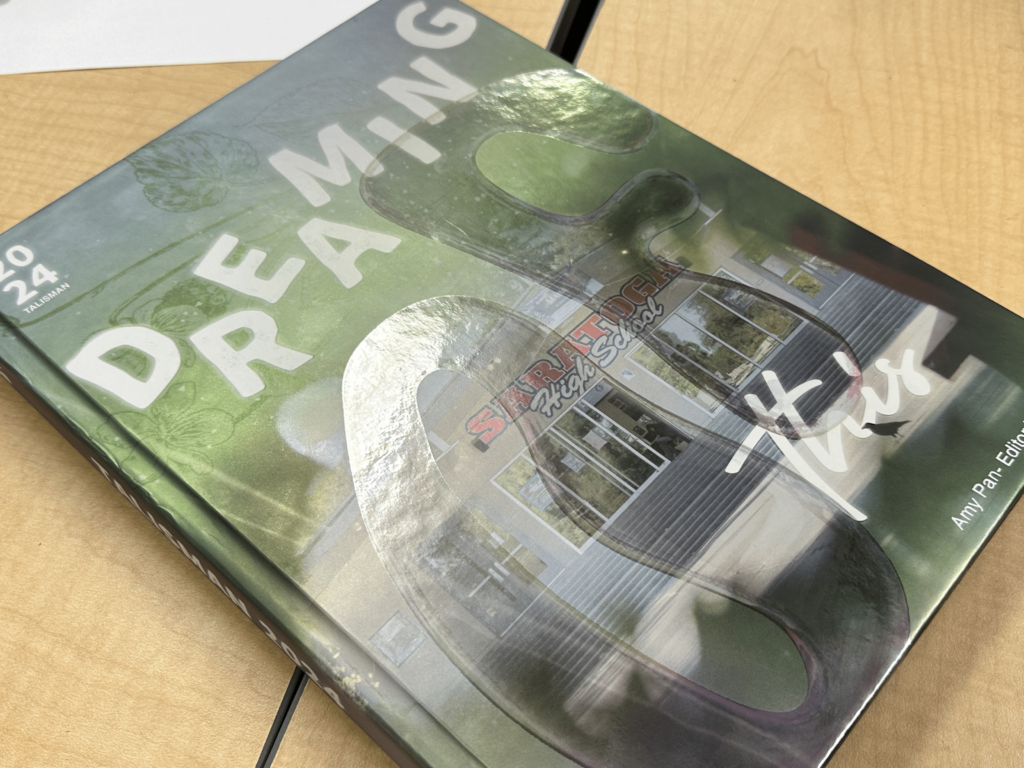Senior Cameron Mackenzie closely observed the dance instructor in front of her, eyeing her movements for the upcoming jazz combination and committing the routine to memory. During her first class evaluation in November, Mackenzie was focused, not letting the pressure of vying for coveted spots at the USC Kaufman Dance program affect her.
Then, it was her turn. Mackenzie did her best to match each move precisely, mirroring the moves of the applicants around her, who all performed for the observing directors behind them.
Like the several dozen of seniors involved with the performing arts, Mackenzie, who is planning to major in dance and business, is tackling the college admissions process with a performance-based path in mind. While these particular students follow the same application requirements like the rest of their class, they also all need to complete supplementals tailored to their intended majors.
A ballerina since age 3, Mackenzie has always dreamed of becoming an apprentice in a professional dance company, never putting much thought into getting a college degree other than it being “something [she] would be doing on the side of ballet.”
However, after several years of performing shows and training at companies like American Ballet Theatre, Mackenzie transitioned into contemporary dance last year, which Mackenzie finds more fulfilling from its greater “freedom of movement and expression.”
So far, college applications have been chaotic for her. On top of managing her school work and finishing essays, Mackenzie has spent most of her nights in the studio finishing taping her pre-screening videos.
Even so, she said that pursuing a nontraditional career is worth all of her efforts.
“I feel incomplete without dance,” Mackenzie said. “Everyone’s asking me why I’m doing dance instead of academics, but I don’t know what I would do with myself if I just did academics.”
According to Mackenzie, most performing arts programs require pre-screening auditions, which require applicants to send videos before being invited to audition in-person at the school campus. These videos range from monologue cuts to dance routines, depending on the school’s requirements.
Additionally, Mackenzie has been traveling back and forth from campuses like Chapman University to complete her auditions for the past few months. Since Mackenzie has also been asked to attend 2-hour dance classes held at campuses for directors to evaluate her as well as other applicants, she will making over seven trips between Los Angeles and New York in January.
“The classes are nerve-wracking but less so because you get a combo and just go with it,” Mackenzie said. “But if you were doing a solo audition, the whole panel is watching you and your routine must be executed to perfection.”
Similar to the dance application process, many theater departments require supplements in addition to essays, with some calling for auditions and others for resumes and portfolios. Seniors Julie Cai and JT Hulme, both theater applicants, are planning to fly to southern California throughout the next few months to complete auditions.
Like Mackenzie, both Cai and Hulme have found schools like USC and NYU suited to their interests. Hulme is also applying to small conservatories like American Musical and Dramatic Academy, since he believes that they tend to be more focused on developing performing skills, whereas universities in urban areas allow easier transfer to a field outside of the arts. Cai specifically chose non-conservatory schools like Northwestern that would allow her to explore other interests beyond theater.
Currently, Cai is applying to colleges for a Bachelor of the Arts (B.A.) degree in theater with a concentration in acting. Cai also hopes to double major in a field that would give her “more of a practical side” like business, as she develops the same types of skills in both fields like teamwork.
“It took me a while to tweak that dream and figure out how I wanted to go after it,” Cai said. “That’s why I’m pursuing a B.A. instead of a B.F.A. (Bachelor of the Fine Arts) degree in theater so that I can keep my options open.”
Starting with impressions of Disney movies from a young age, Cai did not realize that her vocal talents would someday be implemented into her own theater performances. As she immersed herself in several drama summer camps and classes throughout middle school, Cai decided that she was interested in pursuing acting professionally.
“[Acting] started out as an innocent idea, but it was the creation of characters and alternative universes for people that developed into my love for acting,” Cai said. “It was a gradual growth of interest.”
Like Cai, after participating in theater since age 8, Hulme decided he wanted to become a professional Broadway actor and hopes to specialize in music theater in college. Hulme chose musical theater because of its more numerous job opportunities, more extensive showcase of talents and his own love for musicals.
Compared to other majors like biology, Hulme said that theater requires more previous experience with “becoming familiar with the setting, training and vocal and acting style.” However, even though it is a more difficult major to pursue, theater has always been his passion.
“Theater leaves a lot of open room for you to do whatever you want — you have more choices and instability with it, and it’s definitely different,” Hulme said. “I probably could handle doing other jobs, but theater is what I’ve always wanted to be doing.”


























